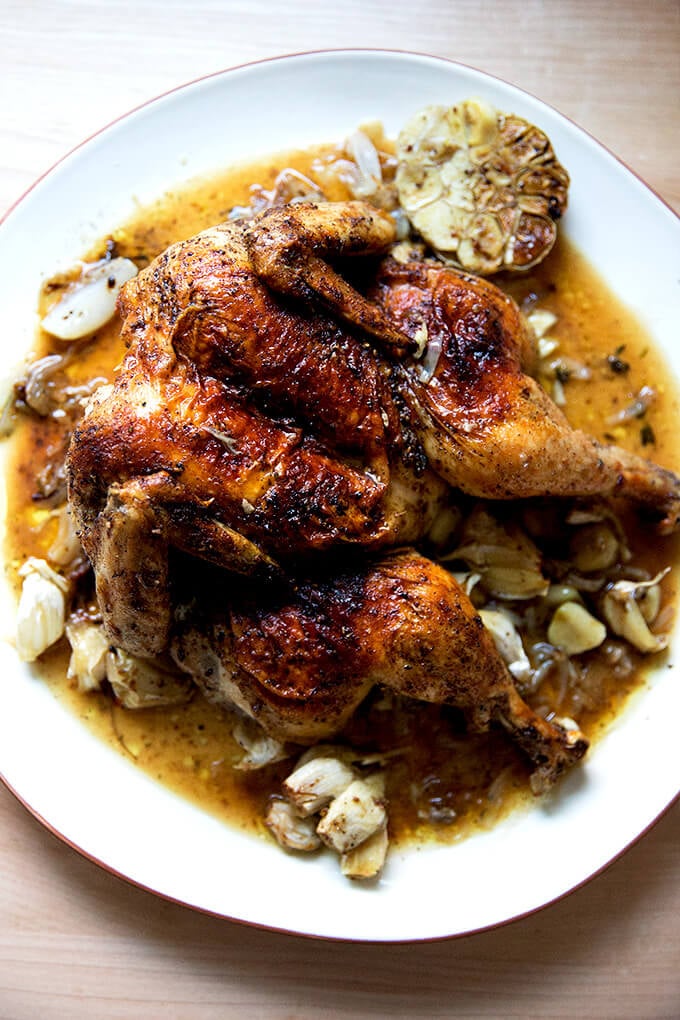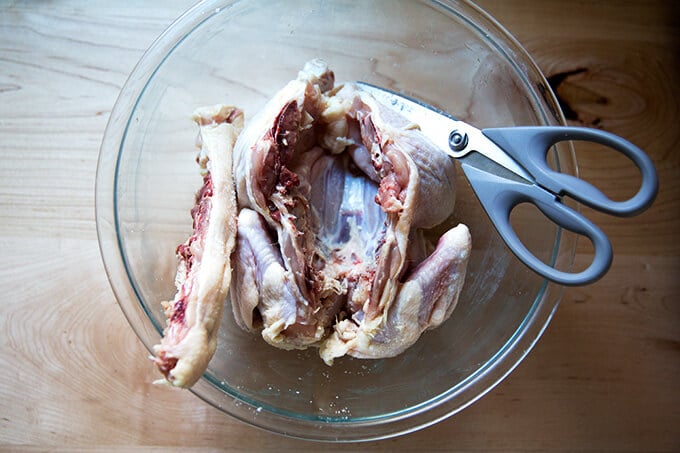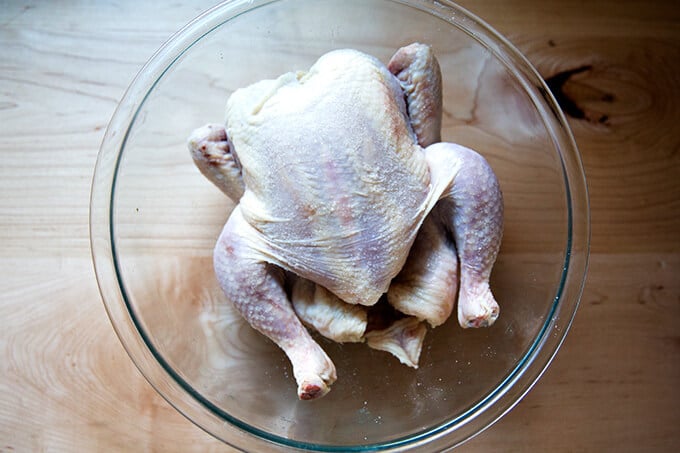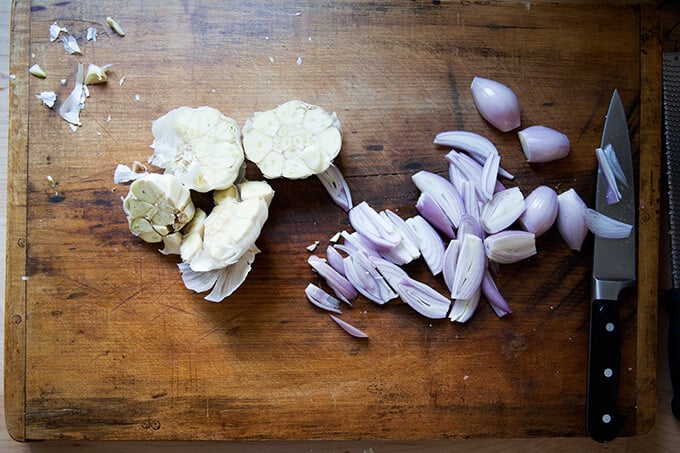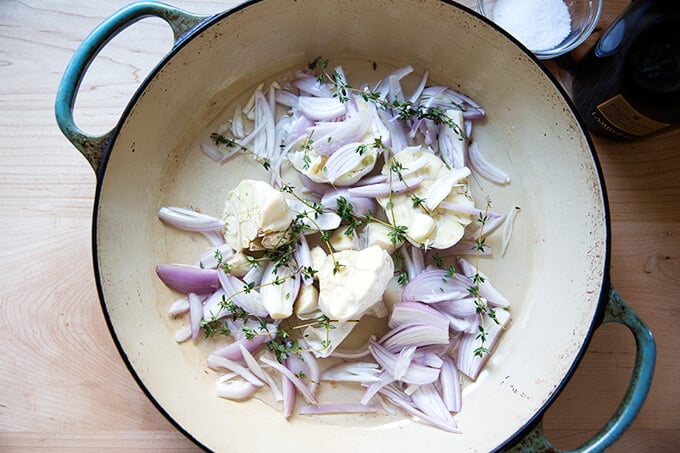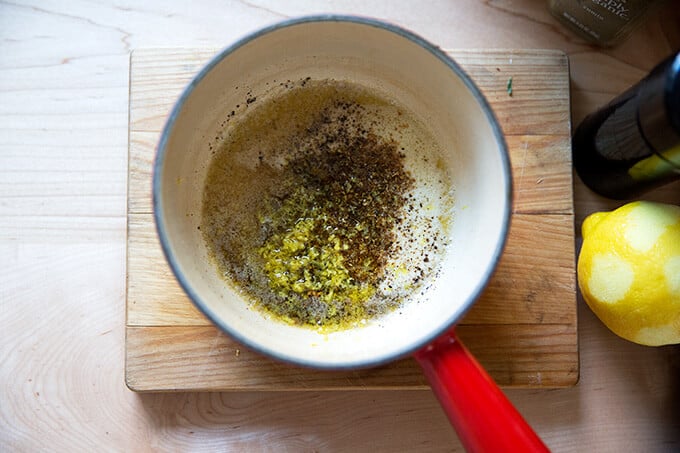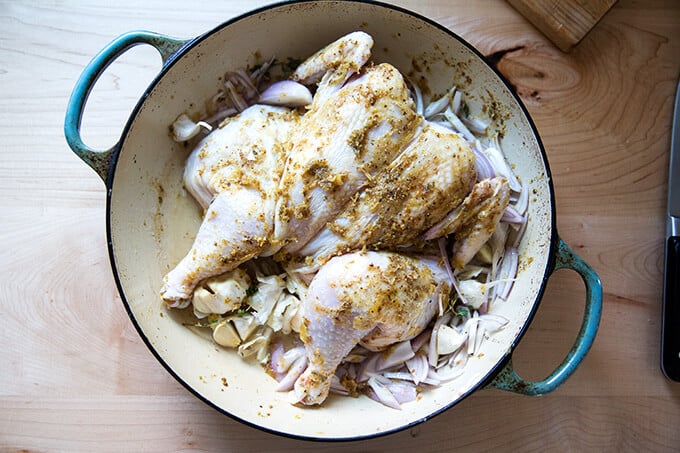It came together effortlessly, cooked quickly, and looked stunning, yielding an abundant and flavorful sauce, perfect for dunking crusty bread into. I served it as Dorie suggested, right out of the skillet, “for a very casual grab, dip, and dunk dinner.” With bread in hand, not a buttery clove of garlic, a melting sliver of shallot or a drip of sauce was spared. The beauty of this dish as Dorie notes is its adaptability: “If you fall in love with the technique,” she says, “you can put it in the rotation and fiddle with the flavors each time.” I’ve been enjoying the suggested combination of za’atar, cumin, coriander, and lemon, but I’m looking forward to trying her French variation with fresh tarragon replacing the spices entirely. Everything in Everyday Dorie looks and sounds so inviting: roasted squash hummus, black bean chipotle dip, chicken Milanese with celery salad, slow-roasted tomatoes for everything, so-good Miso corn, oven-charred tomato-stuffed peppers. Friends, have you cooked from Everyday Dorie? Have you discovered any gems? Let me know in the comments. Hope the start of 2019 is treating you well. PS: What to do with Leftover Roast Chicken? Make a Salad PPS: How to Roast A Chicken and Make the Most of it
How to Spatchcock a Chicken
Here’s a play-by-play. If you remember, salt your chicken ahead of time—it helps keep the breasts from drying out, and generally helps keeping the chicken juicy. Gather your ingredients. Halve the heads of garlic. Slice the shallots. Place them in a skillet with thyme or other herbs. Add white wine and stock (or water). Make a seasoned butter. You can do this with softened or melted butter. I prefer to melt. Brush it all over the chicken, then chuck the whole thing in the oven for 45 minutes. Let it rest briefly, then serve with lots of crusty bread. 5 from 11 reviews Salting in Advance: Salting the morning you plan to cook chicken or other meat is sufficient, but it’s best if you can do it the day before or even two or three days ahead of time. I find this makes a big difference especially when I’m cooking a whole chicken — it helps keep the breast juicy — and less as important, when I’m roasting a spatchcocked bird, which generally cooks more evenly. Spices: If you don’t have sumac or za’atar or any of the others, don’t worry — lemon zest, salt, and pepper would suffice as would any combination of the spices listed. Dorie’s French variation calls for omitting the spices and using fresh tarragon and lemon zest in their place. One change: Dorie calls for using softened butter, which she mixes with the spices and rubs all over the chicken including under the skin and over the breast and other parts. I use melted butter instead, which I stir the spices into and brush over top.
